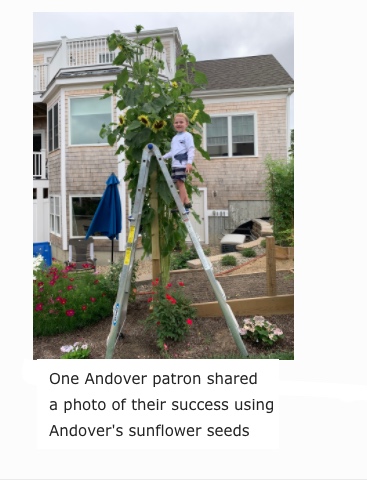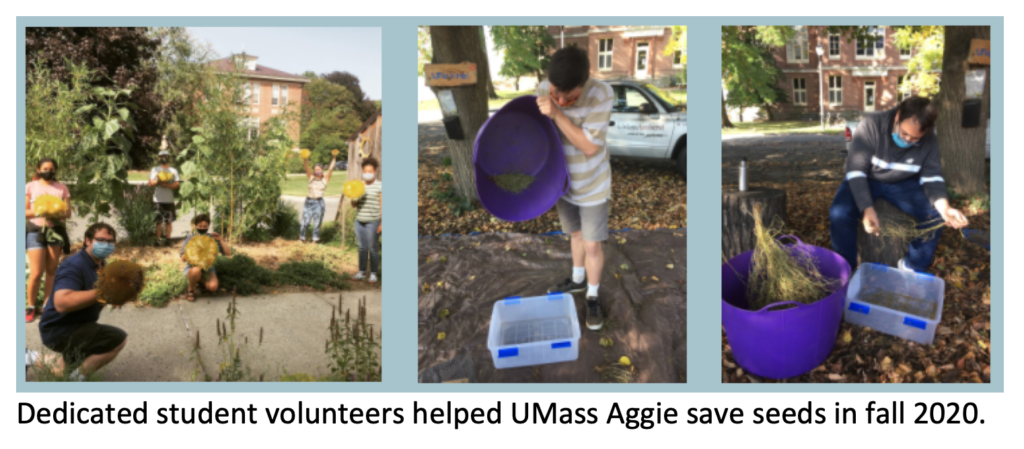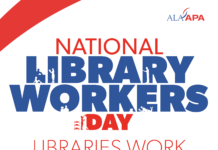If your library hosts a seed catalog or was intending to add one in 2020, you probably found you a sudden need to totally redesign how you lend seeds. If you read my 2019 blog post, “Growing your patron base,” you already learned from expert librarians I interviewed about setting up a seed library in the pre-covid era. I spoke with these experts, as well as others, again, to learn how they adjusted to the new needs of the community while keeping safe.
Obtaining and packaging
The first barrier to overcome was getting the seeds at all. Some seed catalogs that normally donated to libraries had shut down to protect their workers, and those that found a way to stay open found they had sold out of their seeds before being able to donate. Those still able to donate seeds had a small selection and quantity available. Additionally, many libraries kick off their seed lending year with a seed swap party, in which patrons bring in some seeds to share, but this was impossible. Volunteers from the library as well as local gardening groups usually get together to repackage seeds for distribution. For many libraries this wasn’t possible, and for others, the repackaging all fell into the hands of the librarian, a couple volunteers, or one very dedicated volunteer.
Distribution
During the Spring scramble, libraries that were able to access their buildings at all found different ways to get the seeds out. If they had set up curbside, some tried to put a seed cart out for patrons. However, this created its own problems, including heat and humidity damaging the seeds. Despite these obstacles, the community demand was intense and all or almost all seeds provided were claimed. Mattapoisett Free Public Library came up with a creative solution of mailing seed packets to patrons in order to meet the needs of their community.
Success Stories
The ways in which libraries continued to offer seeds in the face of the extreme challenges of 2020 is inspirational. Memorial Hall Library, Andover was able to hold a virtual program on native trees and shrubs, and over the winter, planned a large series of virtual gardening programs for 2021.
Looking Forward
While we’re all hopeful for a smooth recovery in 2021, cautious librarians have continued to use methods established in 2020, as well as prepare for any potential future needs. If you’re reopening or starting a new seed library, you’ll want to have contingency plans in place. Additionally, many of these options may reach patrons who were unable to participate previously.
Like Sturgis Library, Barnstable, you could type up a digital seed catalog and send it along with your email newsletters. Or you could follow the lead of Massachusetts College of Liberal Arts, and list available seeds on your LibGuide.
If your library usually gets donations from seed companies, you’ll want to plan on asking them earlier than usual. Some librarians have even set up a special part of their home garden to grow plants for seed sharing. You may want to combine a seed saving webinar with outreach asking patrons to save and donate specific seed types. This will also give you the opportunity to educate on proper seed pollination techniques when saving, so you don’t end up with weird, unexpected hybrids.
Partnering with a local community gardening group can give your library more opportunities to host virtual gardening programming, such as building raised gardens, testing soil quality, starting seeds indoors, permaculture, natural pest management, and more.
New seed librarians benefit from speaking with seasoned experts. By joining the MLS-BlueMarbleDiscussion Listserv, you can ask questions and share advice with other librarians. Paulina Borrego from UMass Amherst also continues to hold virtual meetings with other librarians, passing along sage advice. Perhaps the best advice is, “do something instead of nothing.” If obstacles prevent you from being able to provide the seed library you aspired to this year, don’t let it deter you from offering what you can.
If your library has an active seed lending library, or is hosting gardening related classes, please share your experience with the MLS-BlueMarbleDiscussion Listserv, or post your information as a comment to this post!
Want to see more fantastic collections? Read our other Library of Things Blog posts, or check out our Library of Things LibGuide.
Article by Laura M. Bogart, with contributions by Duxbury Free Library; Alishia Alther of Massachusetts College of Liberal Arts Freel Library; Michelle Skaar of Mattapoisett Free Public Library; Linda CW Gardener of Melrose Public Library; Stefani Traina of Memorial Hall Library, Andover; Corey Farrenkop of Sturgis Library, Barnstable.



